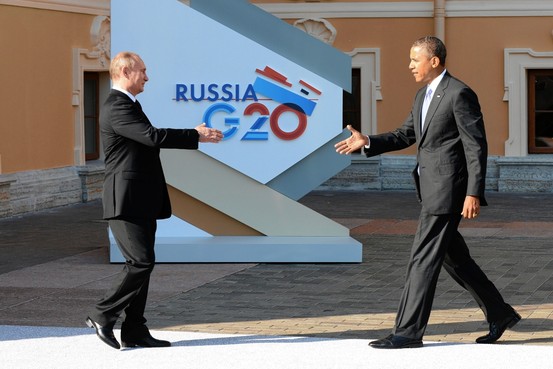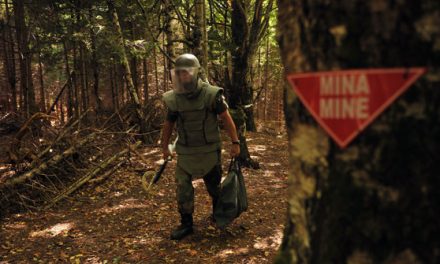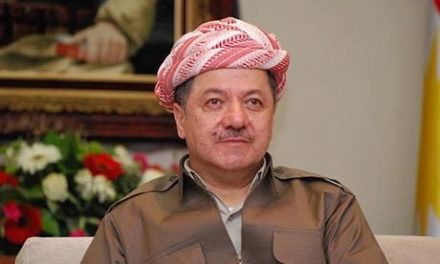By Cengiz Candar, Al-Monitor
Turkey is deeply concerned with signs that the United States and Russia may come to an understanding to close the Turkish-Syrian border, which would have profound strategic and geopolitical implications.
In his well-received report titled “Russia in the Middle East: Moscow’s Objectives, Priorities, and Policy Drivers,” Carnegie Moscow Center Director Dmitri Trenin says, “For the foreseeable future, Moscow and Ankara are likely to be rivals or even adversaries. The Russian intervention in Syria, which was the actual cause of the rupture — the air incident was a pretext — has undercut Turkey’s policies in its near neighborhood and materially damaged its interests in Syria. As long as [Turkish President] Recep Tayyip Erdogan remains in charge and Russia stays on its present course, the Russian-Turkish relationship will be an exercise in conflict management, at best.”
As if to confirm this hypothesis, only two weeks after the report’s publication, Russian President Vladimir Putin told US President Barack Obama that Turkey’s border with Syria should be closed to help preserve the cease-fire. That was on April 18.
The report has a section titled “The United States: A Rival and a Potential Partner.” Trenin, a well-informed analyst on Russia’s policies, writes, “Contrary to widespread US impressions, the Russians do not see President Barack Obama’s hesitancy to use force in Syria as a weakness to be exploited, but rather as prudence of someone who realizes the limits of American power in the region. … The Kremlin also appreciated the Obama administration’s constructive approach to relations with Iran, and, despite the Ukraine crisis, continued to cooperate with Washington to reach the nuclear agreement with Tehran in 2015.”
As much as Syria is the battlefield of international rivalry reflected by proxy wars, it has become a stage for cooperation with Russia.
As Turkey has the longest frontier with Syria — 911 kilometers (566 miles) — it naturally would be affected more than any other country in the region, whether the relationship between the United States and Russia is confrontational or cooperative.
Any level of US-Russian cooperation over Syria is likely to diminish Turkey’s role, restrict Ankara’s ambitious regional objectives and quash any belligerent tendencies toward removing the Damascus regime and enhancing the Syrian opposition supported by the Turkey-Saudi-Qatari axis.
Thus, when the Kremlin’s press desk released a statement that Obama and Putin had spoken on the phone about the situation in Ukraine and Syria, and Putin “highlighted” to Obama “the need to close Syria’s border with Turkey, from which a flow of fighters and arms to the extremists continues,” it did create a chill in Ankara.
Turkish Prime Minister Ahmet Davutoglu was quick to respond. “It is only Turkey that decides on its borders,” he said. Although what he said is technically true, the international system does not tend to notice what he says, because his survival as Turkey’s prime minister is increasingly at stake.
But that’s not why Davutoglu’s reaction lacked the weight it should have. The real reason was, essentially, the deep conviction held by Turkey’s Western allies — above all the United States itself — that the route from Turkey to the Islamic State (IS) remains relatively functional.
That is why the United States is tacitly giving the go-ahead to the Kurdish People’s Protection Units, operating under the banner of Syrian Democratic Forces, to capture Manbij, which is halfway between the Turkish border and the IS stronghold of Raqqa.
A month ago, at an international conference in Sulaimaniyah, in Iraqi Kurdistan, Democratic Union Party leader Salih Muslim told Al-Monitor that if Americans really mean to do away with IS and recapture Raqqa, Manbij has to be captured first because it is the junction IS uses most to receive assistance coming from Turkish territories.
Obama’s special representative for the anti-IS coalition, Brett McGurk, was in Sulaimaniyah for the same occasion, and there is no doubt that he heard an even more detailed version of that assessment from Muslim.
The only thing that may comfort the Turkish side following the Russian statement is that the White House’s version of the Obama-Putin conversation is different than the Kremlin’s. The two appeared to have very different takes on the conversation, according to information published by the White House.
Obama urged Putin to halt the increase in violence in Ukraine by pro-Russian separatists, while Putin insisted that the United States try to ensure that Ukraine follow the cease-fire more closely.
Yet, that difference doesn’t suggest that Obama categorically rejected Putin’s argument. It’s no secret that the US administration does not see Ankara’s anti-IS position as sufficient.
Moreover, it seems clear that Obama has prioritized global goals over regional ones — for example, global ones over those involving the Middle East — therefore, he seems to be happy having Russia sharing the burden in Syria. His stance on Syria, as a matter of fact, tends to see Moscow more as a partner to push for a cease-fire or cessation of hostilities.
A Washington Post editorial says, “The Syrian cease-fire has achieved diplomatic zombie status: It is dead but lives on in the otherworldly rhetoric of its promoters, headed by the Obama administration.” In a tone critical of Obama it goes on to say, “The United States lacks leverage over the regime of [Syrian President] Bashar al-Assad and its Russian and Iranian allies.”
Its most pertinent reference to the Obama-Putin conversation was as follows: “The White House reported Monday [April 18] that Mr. Obama had spoken to Mr. Putin by telephone about the unraveling cease-fire. A statement suggested he covered all the bases, including ‘the importance of pressing the Syrian regime to halt its offensive attacks against the opposition,’ the urgency of humanitarian access and the need for progress toward a political solution. But there was no indication that Mr. Putin was given any incentive to respond cooperatively, other than an appeal to his goodwill. If that’s the case, the cease-fire will remain a zombie.”
Such critical remarks don’t encourage an incrementally developing cooperative relationship between Obama and Putin. Obama’s critics and Turkey’s leaders need to wait for the next US president to challenge Putin and Russia in the way they want to see.
The problem is, there is nothing tangible now to suggest that the post-Obama Washington will be much different than the present one in terms of relations with Moscow or in regard to Syria.



















